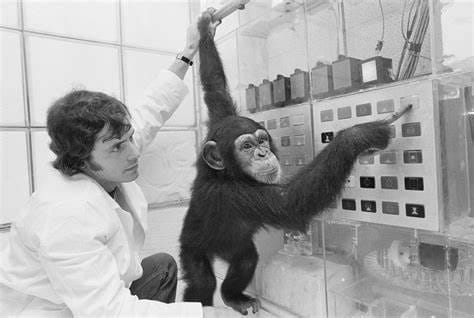Intersections of Evolutionary Biology and Normative Ethics

This writing has been critiqued and used to contextualize another writing. I would recommend you only read this essay for that reason. Work not yet posted.
Ethics is inherently phenomenological and intertwined with incommensurate values. However, to move forward, one must have a solid footing. Ergo, this essay will operate under the narrative that contemporary ethics is the intellectual iteration of Hamilton’s rule: the systems of altruism within evolutionary psychology. This coincides rather etymonically with effective altruism, a movement which seeks to maximize the total benefit of an altruistic model. Hamilton’s rule can be expressed as the equation: r*b-c>0, where r is the kinship relatedness, b is holistic benefit, and c is individual cost. If a genome’s relatedness multiplied by holistic benefit outweighs the individual cost, then it will be sustained into the next generation. For example, an altruistic act within nature is a chimpanzee mother grooming their children. The mother spends time and energy in grooming, and the children gain all the benefit, however the benefit of being free from fleas and being clean outweighs the mother’s time and energy, and this is then reinforced with the direct genetic lineage. However, Hamilton’s ‘r*b’ on inclusive fitness does not reflect the modern world.
As human culture has evolved, relatedness has begun to be more expansive as well, going from kin to those within the community in need. One of the key differences humans have from chimps is the reciprocation factor. Chimps may only care for their own kin, however modern humans are different. If an individual knows that they will be in close proximity to the individual they are helping, then they know that the individual will be obligated to reciprocate. In this international age, our proximity and interconnectedness has and will reach new heights. Reciprocation is everywhere, enforced by culture and even the economy. Hamilton’s rule may be set as b-c>0 as a result.
However, the benefit(b) being synonymous with genetic fitness no longer reflects contemporary values. Instead, the incommensurate value(b) will be prescribed as hedonism: the idea that pleasure or happiness is a universal most-positive value. The tools used to achieve some form of the optimization of hedonism in relation to altruism are done through obligations. Obligations play a role as impositions upon moral frameworks, to achieve collective good, playing a role in the mechanisms of reciprocation, a key facilitator of altruism.
Peter Singer’s position is that you are obligated to donate to make the world a better place until the point that you sacrifice something nearly as important, perfectly reflecting the b-c>0 equation. Therefore, to facilitate a world where b-c equals the possible highest value, we must follow Singer’s proposed obligation. However, there have been pertinent objections to Singer’s position. One such objection is Susan Wolf’s, who argues that people should not follow Singer’s position, with her concept of moral saints being undesirable as its praxis.
Moral saints are people that follow Singer’s position to a ‘T’, and Wolf argues that these people live undesirable lives, and are detached and pretentious to non-moral saints. For example, a contemporary moral saint defined by Wolf may contribute all of their life on making money for charity. Because of this, they will not have time for a social life, and anyone who interacts with them will be brushed off, as they are a waste of time holistically. Additionally, the lives of moral saints in and of themselves are dull, saying that their moral brightness “shines so brightly that it seems to dim and threaten everything else about them”. Essentially, they will lose all individuality and personal prowess. However, Wolf’s argument does not degrade Singer’s position. The argument of moral saints is very abstract, and most importantly, trivial.
Firstly, Wolf is under the notion that those that are moral saints are submitting to a sort of ubiquitous model of what a moral saint is, like turning from a human into a robot, however this is not the case. Every human has psychological limits for how much they can contribute outside of psychological egoism and habitus, just as humans need food and water to survive. The thought of a human being undergoing a complete transformation from a dynamically lived life to the moral sainthood as defined by Wolf is just as unrealistic as a human being living without water. Although it is physically “possible” to achieve the moral sainthood described, they would fail to actually be a moral saint-someone operating to the highest altruistic efficiency-as the psychological costs of living this lifestyle would in turn weaken their hedonistic output. As humans we often fail to appreciate that even our brains are subject to laws of physics.
Secondly, the argument is just trivial, irrelevant, and frankly tone-deaf. Certainly Wolf shares a good narrative on certain contemporary human values that exist outside of hedonism. However even if inserted into the modified Hamilton’s rule, these values would be upheld to even greater degrees, it would mostly only be lost to the moral saint in this exchange. All that is left in Wolf’s argument is that it is undesirable to be a moral saint, which is completely well accepted. Obviously when someone takes up the mantle of trying to optimize altruism, they know they are making sacrifices. Sacrifice is inherent in Hamilton’s rule, represented as c. Wolf has tried to convey a narrative where c is worse than we could have imagined, however in this modern age of one-hundred times multipliers it is almost irrelevant.
In conclusion, if we are to accept ethics as fundamentally following Hamilton’s rule, with hedonism as the ends, then Peter Singer’s proposed obligations would be the best means to optimize this rule. Susan Wolf’s critique of Singer’s position posits the proposed means as ends, and there is some value to that, as all human beings are ends in and of themselves. However this does not negate any ends that they are means to, and this would be accepting Wolf’s false definition of a moral saint. The characteristics of humans are bound by physics just as much as their physical needs, so in a world where no one is forced to be a moral saint. To help another one must tend to themselves as well, something incompatible with Wolf’s perspective. Wolf’s critique and definition is detached from reality, and therefore does not degrade Singer’s position or what it hopes to achieve.
References
University, Harvard. n.d. “Study Finds Chimps Perform Grooming Behavior the Same Way Their Mothers Did.” Phys.org. Accessed April 26, 2024. https://phys.org/news/2016-11-chimps-grooming-behavior-mothers.html.
Trivers, Robert L. 1971. “The Evolution of Reciprocal Altruism.” The Quarterly Review of Biology 46 (1): 35–57. https://www.jstor.org/stable/2822435.
Boyd, Robert, and Joan B Silk. 2018. How Humans Evolved. 8th ed. New York: W.W. Norton & Company.
Wolf, Susan. 1982. “Moral Saints.” The Journal of Philosophy 79 (8): 419–39. https://doi.org/10.2307/2026228.
This was citated originally in the Chicago style. For footnotes, see original:
